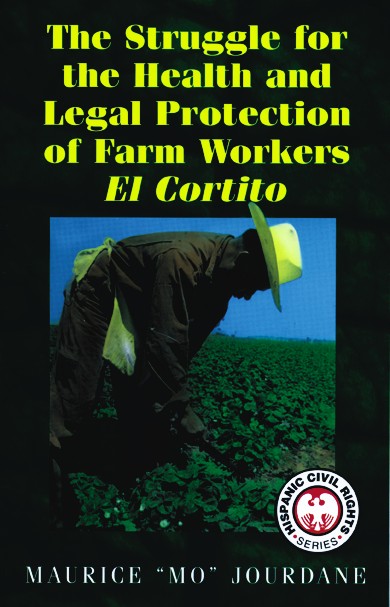The Struggle for the Health and Legal Protection of Farm Workers: El Cortito
$16.95
by Maurice Jourdane
ISBN: 978-1-55885-423-9
Publication Date: 2005
Bind: Trade Paperback
Pages: 208
An absorbing look at the effort to safeguard the well-being of California farm workers.
Look Inside
Available
One of Maurice “Mo” Jourdane’s greatest contributions to the advancement of farm workers in the fields of California was his relentless – and ultimately successful – effort to end agricultural employers’ required use of the short-handled hoe by laborers in the state’s lucrative lettuce, celery, sugar beet, and strawberry industries. The short hoe, known by Hispanic farm workers as el cortito (the short one), was the cause of severe and permanent crippling of hundreds of thousands of field laborers. It required workers to spend as many as ten to twelve hours each day, often in more than 90 degree heat, stooped over in a back-breaking posture, thinning and weeding plants for agribusiness employers who profited immensely from the workers’ low cost labor.
The text and eight pages of photos from the period chronicle Jourdane’s decade-long struggle to research and advocate for a state ban of the short hoe and his efforts to protect other civil and human rights of California field workers. Parading through the pages of El Cortito are most of the principal players in the struggle for the rights of farm workers, from César Chávez and Dolores Huerta to Governors Jerry Brown and Ronald Reagan.
This document is critical for an understanding of continuing injustices that plague contemporary Latino (and other immigrant/minority) labor struggles in the garment, service, and heavy production industries of the nation. Jourdane’s historical summation of the farm workers’ struggle for justice emphasizes that despite real gains that California farm laborers achieved in the 1960s and 1970s, today much more work remains to ensure safe and decent working conditions.









